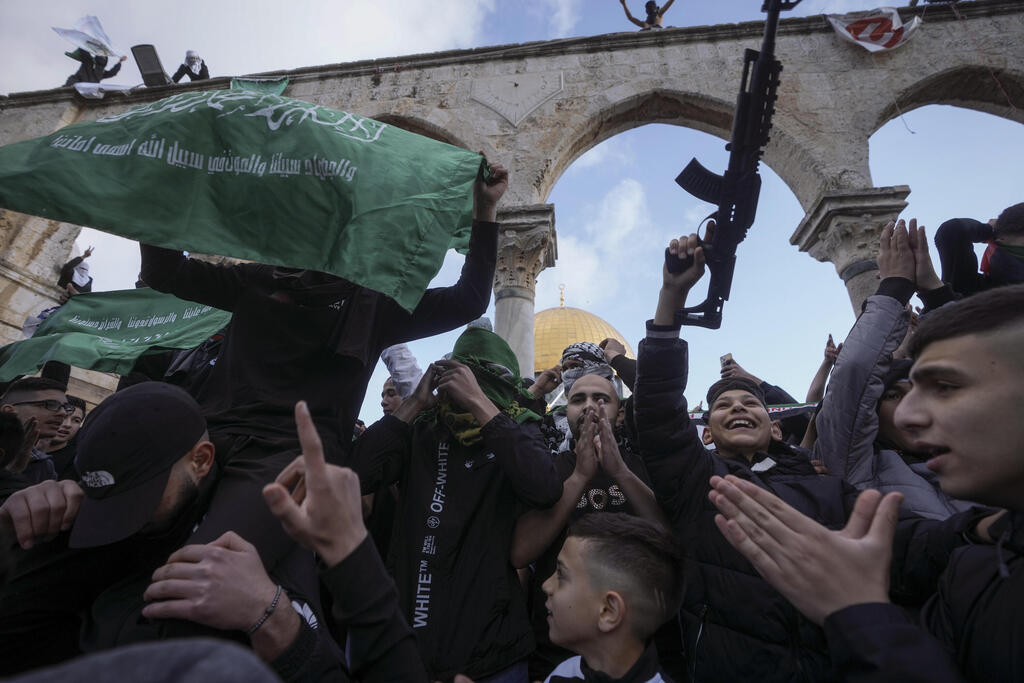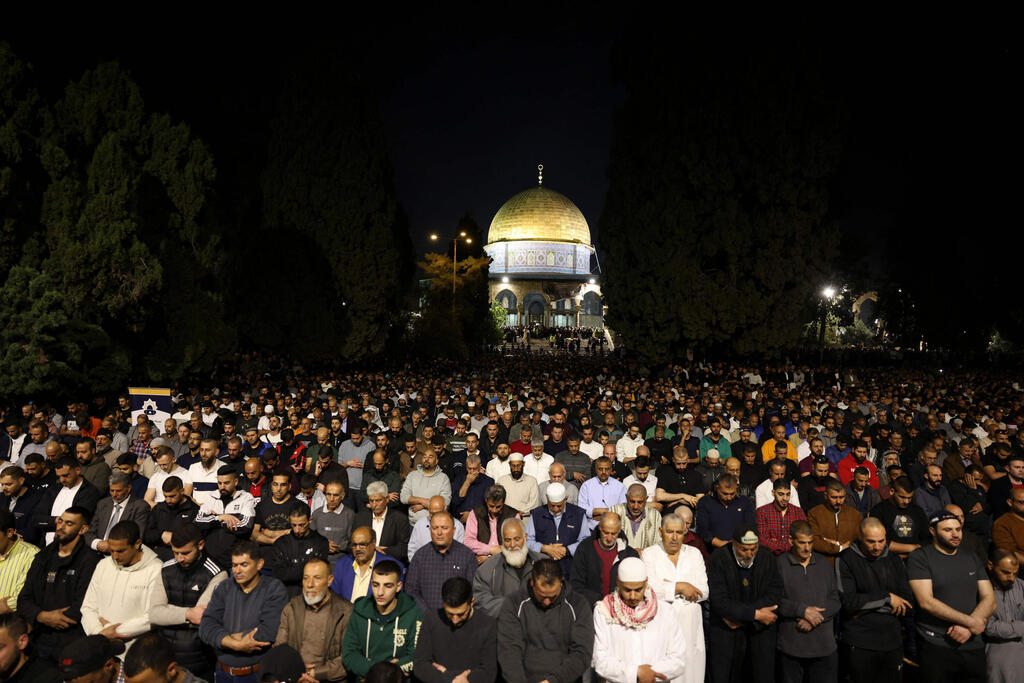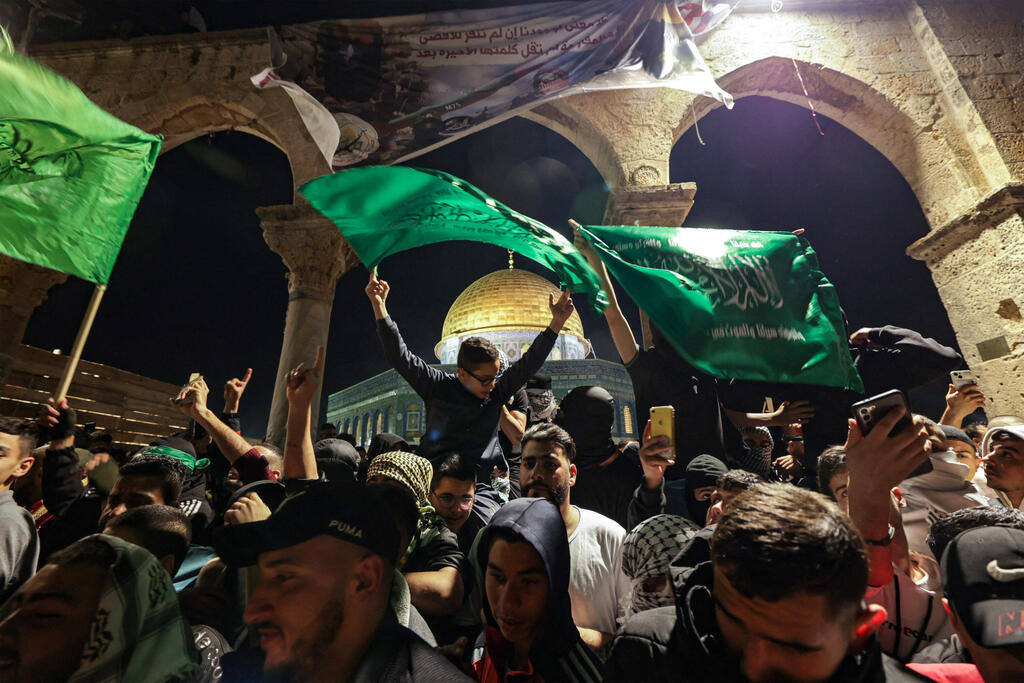The approaching Ramadan month will raise more than a few security challenges for Israel. Against the background of the war in Gaza and accelerating escalation with Hezbollah in the north, Ramadan will be observed this year in a particularly tense and extreme atmosphere, over and above the challenges and inherent complexities that always accompany the month — a month identified with attempted and successful attacks on Jews.
Because Gaza is, for the most part, currently under Israeli security control, and because the army is poised and prepared for the start of all-out war at the northern border, naturally Israel’s chief remaining worry is related to the West Bank and East Jerusalem.
In the West Bank, a significant wave of terrorism has been in progress since late 2021, at varying intensity. Israel’s military action in the various cities of the West Bank since the start of the war in Gaza (and previously, in what were known as “operations” — Operation Breakwater and Operation Home and Garden) has not been sufficiently powerful and broad. It bespeaks a strategy of "mowing the grass” at best, intended to limit the military buildup and empowerment of the territory's terrorist organizations.
Since the start of the war in Gaza, Israel has in fact arrested some 3,450 terrorist operatives in various parts of the West Bank, including some 1,500 Hamas operatives, but they form a drop in the bucket and, what’s more, a great number of them apparently have been or will soon be released. There are still well-established and organized terrorist organizations in the area. Some are independent, others are linked variously to Hamas, Palestinian Islamic Jihad and Fatah.
Another challenge is rooted around Jerusalem’s holy sites and East Jerusalem. In recent years, Hamas has succeeded — under the tutelage of radical Islamic powers such as Qatar, Turkey and Iran — in acquiring a foothold on the Temple Mount and becoming a barometer for escalation-related matters there.
In recent years, every Ramadan has seen anti-Israel rioting by Muslims who ascended the Temple Mount. They have barricaded themselves in the Al-Aqsa Mosque, aimed and shot fireworks as weapons, flung rocks and stones at police, tried to prevent Jews from visiting the Temple Mount, and attacked both civilians and security forces in the area. Moreover, various parts of East Jerusalem itself have turned into war zones.
At the same time, there is still significant fear of an “Operation Guardian of the Walls II” situation of unrest in the mixed cities and in the cities of the Arab “Triangle.” Such a scenario was also feared after the Hamas attack of October 7, but Israel Police, reinforced and wisely deployed in the mixed cities, stopped that eventuality before it arose.
It must also be noted, however, that Israel’s Arab communities showed responsible behavior and maintained calm internally — apparently both because of the ferocity of the Hamas attack, which astonished even them, and because of security warnings from Israel Police and the Shin Bet, which were prepared for the scenario in advance.
In this coming month of Ramadan, those arenas are liable to be even more challenging because of a convergence of events, including the assignment of religious overtones to the war in Gaza (including the name that Hamas chose for its October 7 attack, “The Al-Aqsa Flood”); attempts by Turkey, Iran, Hezbollah, the Palestinian Authority and Hamas leadership abroad to enflame the region by targeted funding and by smuggling weaponry to terrorists; and incitement by radical elements on social media.
More stories:
Those circumstances could further intensify the attempts at terror attacks by organizations, unaffiliated squads and individuals. A strong, widespread escalation would hamper Israel’s military focus on the Gaza Strip and harm the preparations for possible war on the northern front. Widespread escalation would force the IDF and other security services to redeploy their personnel, diverting fractions of them — while also diverting resources — to cover the various arenas.
In order to make its way through Ramadan during a time of security complications, Israel must take a number of steps. First, Israel Police must reinforce its presence in the mixed cities and Arab cities in the same way that it was deployed after the October 7 attack. In this context, the National Guard should be employed to keep close contact with the grassroots and forestall any chance of riots or terror attacks.
In the West Bank, the government should instruct the IDF to intensify its military activity, to more broadly authorize targeted assassination by means of UAVs, and to mount a series of extended tactical military operations throughout Ramadan in a number of cities at once (especially in northern Samaria and in the Hebron area) in order to prevent terrorism from raising its head and to limit its ability to attack.
4 View gallery
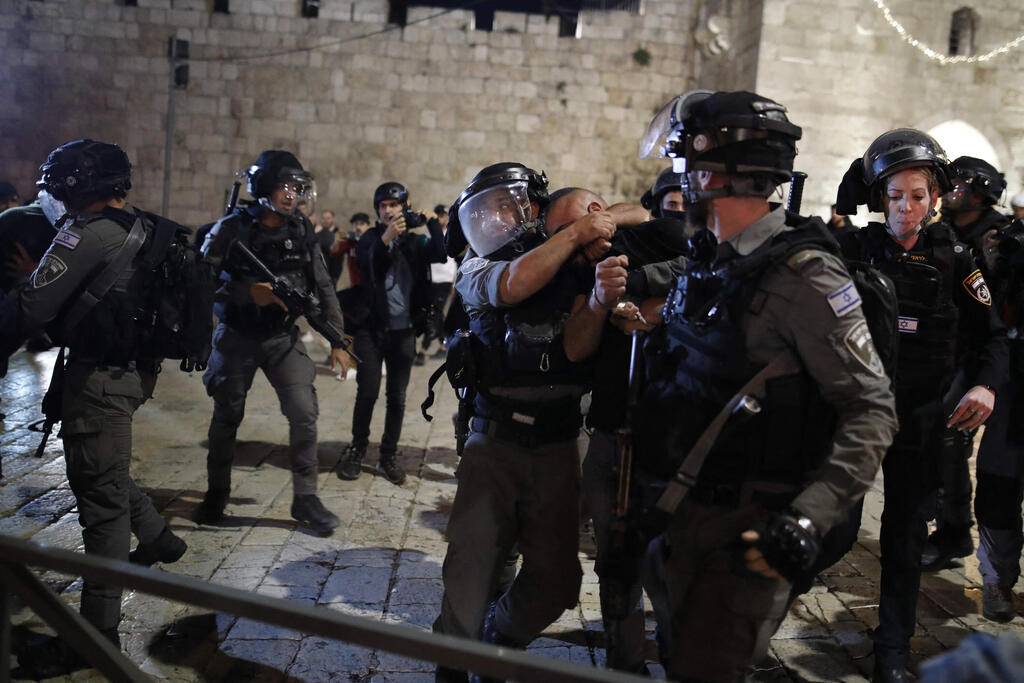

Israeli riot police arrest Palestinian during unrest in East Jerusalem, 2021
(Photo: AFP)
In the Temple Mount area, Israel’s government must provide Israel Police with wide-ranging support for incapacitating terrorist elements and resources in advance by resolute aggressive action such as confiscating fireworks, knives and other potential means of terrorism and injuring the security forces. In addition, a large police force must be stationed at the compound in order to demonstrate presence and strengthen deterrence.
East Jerusalem requires an overall strategy that integrates physical/military tools with technological tools. The area must be substantially reinforced with personnel from the Border Police and National Guard.
In addition, Israel must mount an extensive operation of weapons confiscation and preventive arrests in the various East Jerusalem neighborhoods. Such an operation will strengthen the standing of the State of Israel as the actual government on the ground and will reduce the terror supporters’ ability to harm Jewish citizens. The operation must be carried out together by Israel Police, Border Police, the Shin Bet and the National Guard, with support from various military elements.
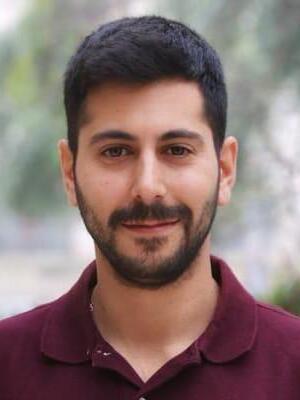 Dr. Omer Dostri
Dr. Omer DostriMeanwhile, Israeli intelligence must take action to strengthen its hold on social media through advanced artificial intelligence systems to uncover terrorist plots and foil them in advance. Meanwhile, Israel must demand that social media companies expel the disseminators of incitement and block them from the platforms.
The Israeli government’s overall strategy for the Ramadan month, and for overcoming the Islamist terror that accompanies it, must rest on proactive attack rather than merely on defense and response. The rationale should be to smother terrorism in advance in order to stop it from taking hold, just as a fire is smothered to stop it from spreading.
- Dr. Omer Dostri holds a Ph.D. in political studies. He is a military strategy and national security expert, and a researcher at the Jerusalem Institute for Strategy and Security (JISS) and the Israel Defense and Security Forum-Habithonistim.



